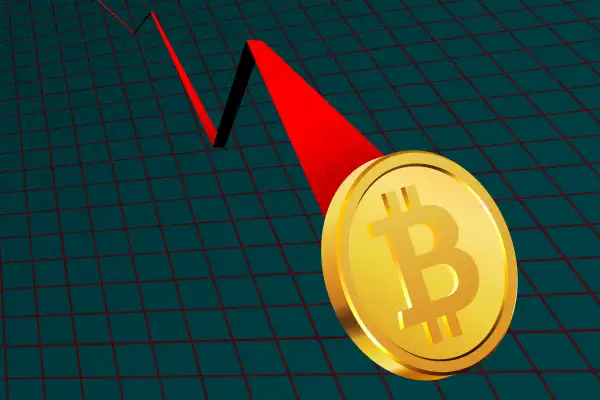Why Bitcoin Crashed This Weekend, and What Crypto Investors Should Do Next
Money is not a client of any investment adviser featured on this page. The information provided on this page is for educational purposes only and is not intended as investment advice. Money does not offer advisory services.

The cryptocurrency market had a rough weekend.
Bitcoin's price plummeted more than 20% at one point on Saturday, then recouped some of its losses during what turned into a rollercoaster of a few days. As of Monday at midday, the price sat at about $49,000 per coin, far below the $68,000 per coin we saw just last month.
The prices of other cryptos, like Ethereum, Cardano and Dogecoin, also fell.
The stock market experienced a sell off last week after comments from the Federal Reserve that indicated it may end support for the economy sooner than many hoped, and growing concerns about the Omicron variant of COVID-19.
Last week, Fed Chair Jerome Powell signaled during the Senate Banking Committee that the central bank could pull its economic support more quickly as inflation concerns run high. This, on top of fear of the new Omicron variant of the coronavirus, had investors concerned.
The crypto market stayed relatively stable throughout most of the week despite stock prices falling, but apparently many investors in Bitcoin and other cryptos felt worried enough over the weekend to sell.
"The market isn’t mature enough yet to survive major selling so you will continue to see flash crashes," says Matthew Tuttle, chief executive at Tuttle Capital Management.
Bitcoin advocates tend to argue that the digital asset is not closely correlated to other assets, like stocks, and so it can therefore act as a safe haven during market sell offs. But the recent plummet shows that may not be the case.
"When investors are scared, speculative risk assets can be the first markets to be hit hard," says Giles Coghlan, chief analyst at HYCM.
Cryptocurrency is certainly a speculative market.
What should Bitcoin investors do?
The crypto market is no stranger to volatility. Bitcoin hit a high just below $65,000 per coin in mid-April before plunging over 50% by July due to several factors including news from Tesla and the Chinese government. By October, the price was back to a new high over $66,000.
If you think you can stomach the volatility and want to invest a small amount in Bitcoin, make sure you are going to hold onto it for a longer period of time, and not want to sell when the price drops and you get worried, Anjali Jariwala, certified financial advisor and founder of FIT Advisors, previously told Money.
“You have to be comfortable with having that money potentially go away,” she added.
Crypto will continue to be volatile, Tuttle says. So if you're planning to buy in, now's not the time.
"Wait until the trend shows signs of moving up," Tuttle says.
But if you do decide to buy in, keep in mind that financial advisors recommend only investing a small amount of your portfolio in risky investments like crypto — 5% of your overall portfolio at most.
More from Money:
Does 'Buy the Dip' Actually Work? What Experts Think of the Internet's Favorite Investing Strategy
A Crypto Expert Explains the Bizarre 1,000% Rise of the Omicron Token
